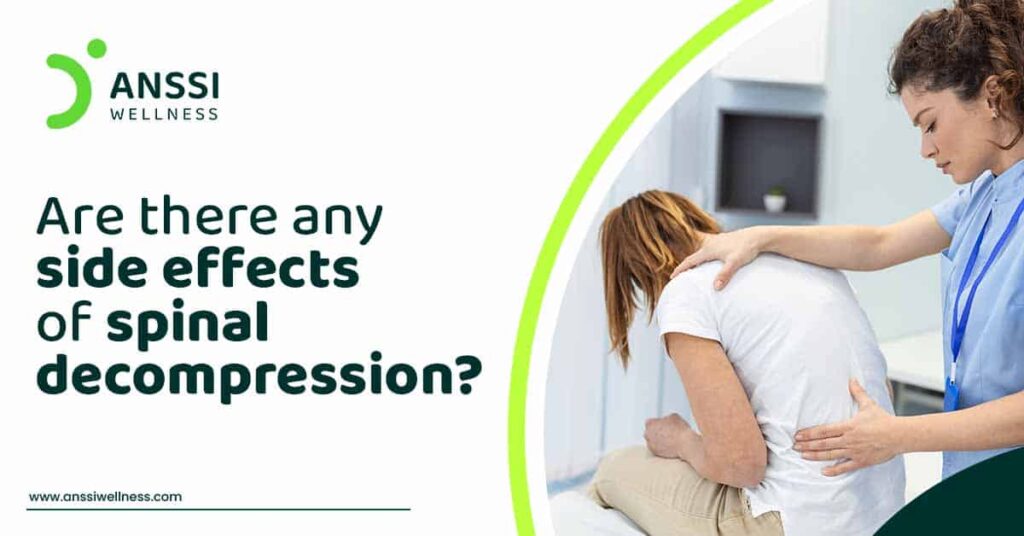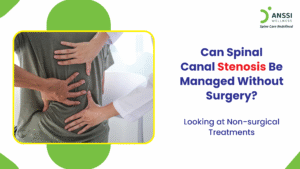After discussing whether or not non-surgical spinal decompression is beneficial for your spine, you might be curious about any potential drawbacks. What exactly are they, if there are? This article aims to explain what to anticipate following spinal decompression treatment along with the potential side effects, if any.
What is the Procedure for Spinal Decompression?
We ought to begin by answering how this treatment is administered. For spinal traction, a specialised decompression table is used to position the patient. The patient is then gently stretched at regular intervals, according to the treatment plan for each patient. The patient is fully clothed during the treatment, which only takes 30 minutes.
Patients with a wide range of neck and back issues have reported feeling better as a result of this treatment. Due to the negative pressure created between the vertebrae, disc protrusions and bulges retract due to the decompression action performed on the spine. Spinal decompression treatment facilitates blood flow and reduces pressure on nearby nerves. Oxygen is brought in with increased blood flow, which aids in the healing of the spinal discs.
Are There Any Potential Drawbacks?
The quick answer to this question is ‘No’. Most of the patients do not experience any adverse side effects from spinal decompression treatment.
On the other hand, no matter how minimally invasive a surgical procedure is, there will always be some side effects.
As the body adjusts to the decompression, the most common side effect is a few weeks of dull aches. The muscles in the back are gently stretched during spinal decompression and some patients may experience the same soreness as they would after a particularly strenuous workout.
Spinal decompression can occasionally cause muscle spasms and pain in the patient’s arms and legs.
Do I Need Spinal Decompression?
This non-invasive treatment offers an alternative to spinal decompression surgery. Even though non-surgical spinal decompression does not require significant recovery time, some patients may need 4 to 6 weeks for treatment before they experience lasting relief.
Spinal decompression treatment, which does not require surgery, is rapidly gaining popularity. Its well-documented physical advantages include increased mobility, enhanced joint flexibility, and general pain relief. There is less of a chance of post-surgery infections if you choose non-surgical spinal decompression over invasive procedures and there is no additional prescription or use of painkillers for patients.
Non-surgical spinal decompression provides natural, long-term pain relief after treatment is completed, whereas painkillers only reduce pain while they are present in the body. The non-surgical decompression treatment is safer, faster, and doesn’t require any downtime compared to the after-surgery recovery time.
Even though non-surgical spinal decompression is safe, there are some people who should talk to their primary care doctor before they decide to get it. These include:
- Women who are pregnant
- People with spinal degeneration or severe osteoporosis
- Patients who have surgical implants (screws, rods, plates, etc.)
- Patients who have suffered severe nerve damage and patients with spinal fusion, tumours, or spinal fractures
The patient may be asked to have screening tests to rule out any of the conditions listed to avoid any risks. If you have any questions or concerns regarding spinal decompression, please do not hesitate to ask the doctor.
About ANSSI:
ANSSI Wellness focuses on improving the quality of life for patients suffering from spinal issues, aiming to provide relief where other conventional treatments have failed. Through advanced non-surgical spinal decompression treatment, ANSSI is committed to helping patients avoid surgery and recover in a safe, effective, and compassionate environment.
FAQs
Yes, in many cases, the bulging disc symptoms go away after a period of time.
MRI is the best diagnostic test to detect herniated and bulging discs.
Massage can provide short-term relief from chronic back pain caused by a bulging disc.



